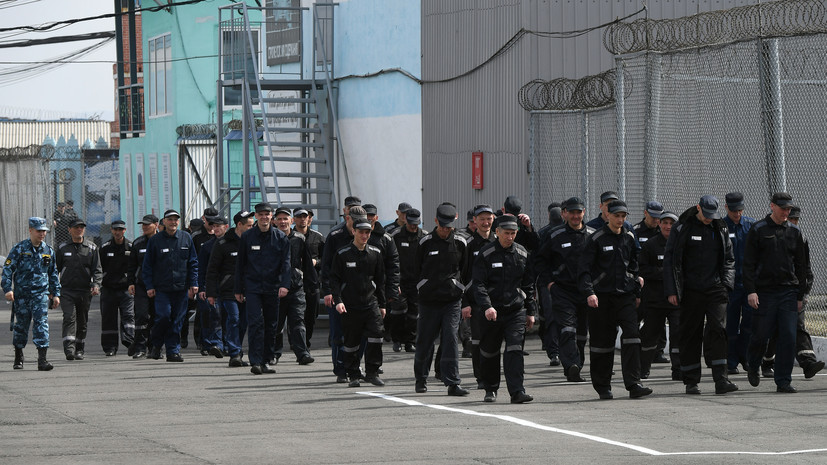The Federal Law on Probation was adopted in February 2023, but its provisions regarding the actual creation of individual programs for the re-socialization of former prisoners, their employment and placement after leaving prison will come into force only in January 2025.
While the law has not begun to work in full force, the head of the relevant commission of the HRC, Alexei Melnikov, draws attention to the fact that the key issue - the employment of former prisoners - is legally regulated only in the most general form.
"The penitentiary inspectorates, which will deal with probation, are only entitled to request information about vacancies and provide this data to former prisoners, but not all employers will want to see employees with a prison past. So, the question arises about quotas for jobs for such candidates in municipal and state-owned enterprises, "the human rights activist said in an interview with RT.
KPIs for officials
According to Melnikov, the issue of residence of former prisoners remains unresolved.
"It is assumed that they will live in social dormitories, but it is not clear how local authorities will be responsible for this. We need to think about the introduction of KPIs for officials," said the head of the HRC commission.
In addition, the human rights activist stated the need to work out a system of interaction between penitentiary inspections, which are responsible for providing a probation program, and the units of the Ministry of Internal Affairs that carry out administrative supervision over former prisoners.
Also on the russian.rt.com "The one who was in prison causes negative feelings": Mikhail Efremov made a documentary about life in prison
"For example, existing forms of supervision over the presence of a former prisoner in an apartment may interfere with his employment, work in the morning or at night," he explained.
At the same time, the interlocutor of RT noted that some elements of the system are already functioning. We are talking, in particular, about correctional centers, where those sentenced to compulsory labor are kept, as well as prisoners from correctional colonies, including strict regimes, who have been softened in connection with their imminent release.
There are now 46,<> people in correctional centers, and all of them are employed.
"We visited these institutions and saw that in some regions employers are so interested in such employees that they even create dormitories for them at their production sites, for example, at a poultry farm in the Ryazan region. In Moscow, prisoners of the correctional center are also in demand at housing and communal services enterprises, but there are also in-demand IT specialists, and there is a former law enforcement officer working in a law firm, "Melnikov said, adding that one of the most common professions acquired in places of detention - a seamstress - is also in demand in the private sector.
Also on the russian.rt.com "Cooperate with Western Groups of Influence": how human rights activist Osechkin earns money by publishing torture and criticizing the Russian Armed Forces
Work in progress
Russian Deputy Minister of Justice Vsevolod Vukolov, for his part, told RT that the agency is working to implement the new law.
"The law will be fully implemented in 2025, but work is already underway, we will pay special attention to the training of specialists," he said.
According to Vukolov, employees of penitentiary inspections "must do everything so that a person released from prison is no longer left alone with difficult life circumstances, he can establish a law-abiding life, return social skills and get a job."
During the session, the Deputy Minister also stated the importance of solving the problem of accommodation, providing dormitories to former prisoners during the probation program. Vukolov drew attention to the fact that the probation program will be exclusively voluntary.
This, by the way, the Russian probation system differs from a similar American one, State Duma deputy Maria Butina said in her speech at the forum.
Also at the russian.rt.com "Theater on Butyrka" presented a performance based on the book by Maria Butina "Prison Diary"
Without private traders
"Our law is stronger. The probation institute in the United States has existed since 1955, probation commissions are private organizations, and absolutely everyone passes these commissions, even those who will not be qualified for probation, "said Maria Butina.
The deputy believes that the institution of probation should be of a state nature, since private organizations in the United States, according to her, allow manifestations of corruption.
In addition, Butina drew attention to the fact that in the United States, probation is prescribed as an alternative form of punishment. "If a person violates probation, he is automatically imprisoned," she explained.
Also on the russian.rt.com "Not murderers and not rapists": why pre-trial detention centers are overcrowded in Moscow
Freedom of space
Deputy Director of the Federal Penitentiary Service of the Russian Federation Alexei Girichev spoke about an anonymous survey conducted in places of deprivation of liberty, in which 283 thousand prisoners took part.
They were asked to name the types of assistance they needed after their release.
"They expressed a desire to seek help (as part of probation – approx. RT) 28% of respondents, this is counseling, and getting an education, buying clothes. 25,<> convicts are concerned about the issue of employment after release and place of residence," he concluded.
The representative of the department said that in 2022, 20 thousand prisoners were assisted in the preparation and posting of resumes on the Work in Russia portal.
"These are all convicts with qualifications, education, with working specialties. There were 1518 responses, i.e. 7.5%, that is, the rest go out and do not understand where they will get a job, "the deputy director of the Federal Penitentiary Service emphasized.

